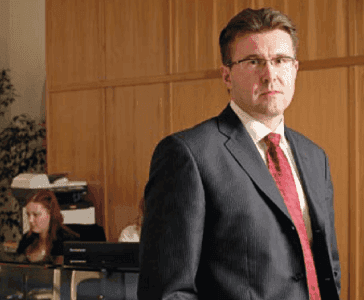The beginning of 2014 in the Czech Republic was marked by one of the biggest legislative changes in decades when the new Civil Code (“NCC”), Act on Business Corporations, and Act on Private International Law came into force, in the process changing more than 200 laws. The NCC was adopted after several years of discussion and preparation, and is designed to extinguish the socialist basis of the former 50-year old Code and return to the pre-war legal tradition, as well as to reflect the needs of modern society. The NCC and the Act on Business Corporations change almost all aspects of Czech Civil Law, including both Contract Law and Companies Law. This article, however, aims to look at changes the NCC brings to Czech Intellectual Property (“IP”) Law.
First, it is necessary to say that the NCC does not actually affect substantive provisions of individual IP laws. Conditions for obtaining IP rights and their validity remain unchanged. There will however be certain changes in IP licensing and, where relevant, IP ownership, which we want to flag in this article.
Changes in IP Licensing
The NCC removes the old dichotomy and frequent overlaps between rules contained in the (old) Civil Code and the (old and now abolished) Commercial Code. This two-track approach plagued Czech IP law. For example, copyright licenses were governed by the Copyright Act, while licenses for almost all other IP rights were governed by the Commercial Code. From January 2014, there will be just one act applicable to all license agreements regardless of what type of IP right is involved.
That said, the NCC still contains some specific provisions dealing with the licensing of copyright, so it is fair to say that the old divergences between copyright and other IP licenses have to a large extent been preserved although the regulation is now contained in a single act.
Among the changes, it is worth mentioning that the NCC allows a license to be granted without a payment of royalty, whereas payment (whether actual or symbolic) was a necessary element of IP licenses under the Commercial Code. The NCC further improves the position of the licensee in situations where the licensee is entitled to enforce IP rights, as the NCC imposes on the licensor a general obligation to provide the licensee with necessary assistance. In the “old days”, it was the licensee who had to provide assistance to the licensor in connection with enforcement of rights. Another change that may have practical impact on IP agreements is that authors may no longer waive their rights to equitable supplementary royalties to which they are entitled when the actual income from exploitation of the copyrighted work becomes disproportionately large.
The NCC also removes the distinction between the legal regulation of business (commercial) and non-business (civil) contracts in relation to contracts for work which are often used as the legal basis for creation and development of copyrighted works (especially software). The NCC explicitly recognizes a new type of “contract for work resulting in an intangible result”, which was previously missing.
General Changes in Contract Law
Despite the fact that the changes directly relating to IP are rather limited, there are numerous changes in general Contract Law that will certainly also affect IP licensing. It is beyond the scope of this article to discuss these changes in detail, but for example the NCC now recognizes the concept of pre-contractual liability, it permits limitation of liability provisions which were previously possible only in relationships governed by the Commercial Code, and it introduces the possibility of assigning entire contracts, not just individual rights or obligations. Other changes involve slightly different compensation of damages, statutory limitation periods and other areas. The NCC sets out a number of general principles that will likely change the way in which courts interpret contracts, including putting greater emphasis on the freedom of parties to contract while protecting consumers – generally the weaker contractual party – and putting less emphasis on formal requirements.
As with adoption of any new legislation, the crucial issue is what effect the NCC will have on legal relationships established before it came into force. In this regard, the NCC provides that apart from issues such as personal status, property rights, and family law, it only applies to rights and obligations established after its 2014 entry into force. The NCC will however impact on IP joint ownership, in particular on the right of first refusal of the joint owners. According to the NCC, the right of first refusal will cease to exist on January 1, 2015. From then on, shares in IP rights will be freely transferable.
New Approach to Unregistered IP Rights?
Last but not the least, we would like to mention that the NCC brings a new and broader meaning to the concept of a “legal thing.” Although highly theoretical, this conceptual change may bring better protection and easier handling with those non-registered or quasi-rights such as know-how, domain names, goodwill etc.
By Vojtech Chloupek, Counsel, and Jiri Maly, Junior Associate, Bird & Bird, Czech Republic
This Article was originally published in Issue 1 of the CEE Legal Matters Magazine. If you would like to receive a hard copy of the magazine, you can subscribe here.




